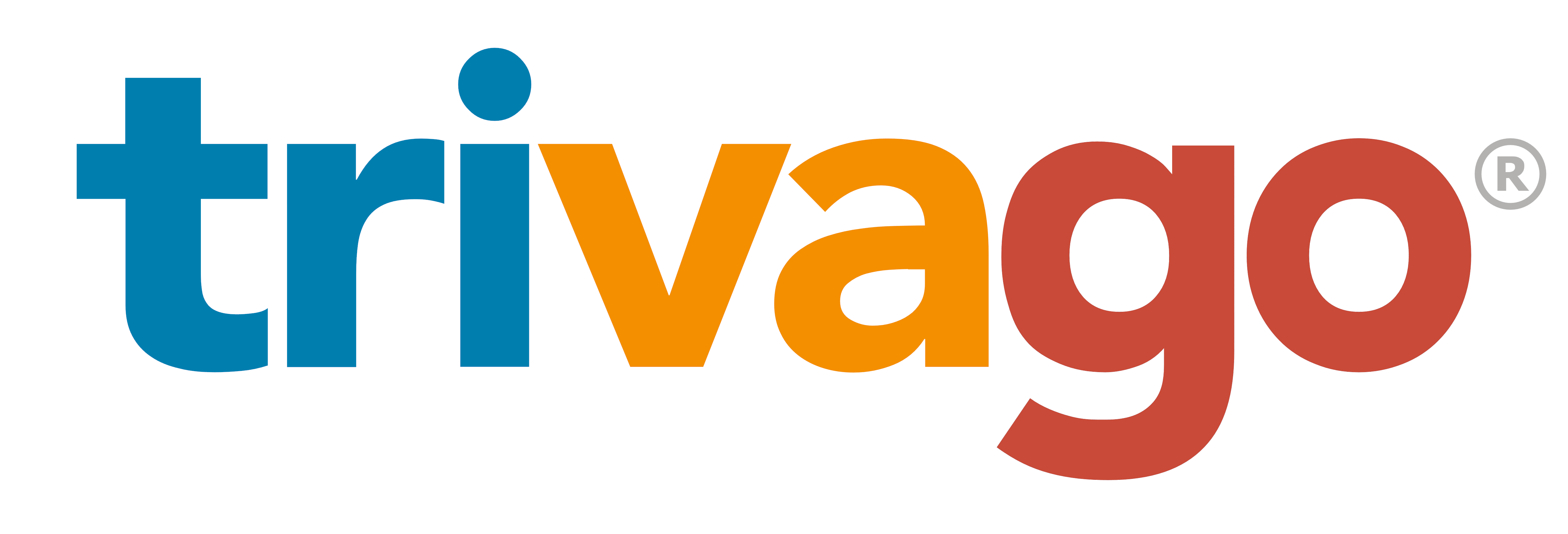The Trivago logo has become a recognizable symbol in the world of travel and hotel booking, reflecting the brand's commitment to providing users with the best options for their needs. From its humble beginnings to its current design, the logo encapsulates the essence of Trivago's mission to simplify travel planning. In this article, we will delve into the history, design elements, and the significance of the Trivago logo within the broader context of brand identity in the digital age.
As a leader in the online travel market, Trivago has managed to create a logo that not only stands out but also resonates with its target audience. The logo plays a crucial role in the company's overall marketing strategy, helping to establish trust and authority in a competitive landscape. By exploring the intricacies of the Trivago logo, we gain insights into its effectiveness as a branding tool.
This comprehensive article will cover various aspects of the Trivago logo, including its design evolution, color palette, typography, and how these elements contribute to the brand's identity. We will also analyze the logo's impact on consumer perception and brand loyalty. So, let’s embark on this journey through the world of Trivago’s branding.
Table of Contents
- History of the Trivago Logo
- Design Elements of the Trivago Logo
- Color Palette and Its Significance
- Typography in the Trivago Logo
- The Role of the Logo in Brand Identity
- Consumer Perception and Brand Loyalty
- The Future of the Trivago Logo
- Conclusion
History of the Trivago Logo
The Trivago logo has undergone several transformations since the company's inception in 2005. Initially, the logo was simple and featured basic typography. However, as the brand grew and expanded its services, the logo evolved to better reflect Trivago's increasing market presence.
In 2013, the logo was redesigned to include a more modern and eye-catching design that emphasized the brand's commitment to innovation. This change coincided with the rise of mobile technology and the need for a logo that could effectively represent Trivago across various digital platforms.
Key Milestones in Logo Evolution
- 2005: Initial logo introduction with basic typography.
- 2013: Major redesign to incorporate modern elements.
- 2019: Refinement of the logo for enhanced visibility and recognition.
Design Elements of the Trivago Logo
The Trivago logo is characterized by its clean lines and straightforward design, which aligns with the brand's mission of simplifying the travel booking process. The logo's design elements include a distinctive font and a unique color scheme that work together to create a cohesive visual identity.
Logo Composition
The logo typically features the word "trivago" in lowercase letters, which conveys a sense of approachability and friendliness. The simplicity of the font ensures that the logo is easily recognizable and memorable.
Color Palette and Its Significance
The color palette of the Trivago logo plays a vital role in conveying the brand's personality. The primary colors used are blue and orange, each with its own psychological implications.
- Blue: Represents trust, reliability, and professionalism.
- Orange: Conveys energy, enthusiasm, and warmth.
Combining these colors helps Trivago establish a balance between professionalism and approachability, making it appealing to a wide range of consumers.
Typography in the Trivago Logo
The typography of the Trivago logo is a critical aspect of its design. The font chosen is modern and sans-serif, which reflects the brand's contemporary approach to travel booking.
Font Characteristics
- Simple and clean design enhances readability.
- Lowercase letters create a casual and friendly tone.
- Custom typeface ensures uniqueness and brand recognition.
The Role of the Logo in Brand Identity
The Trivago logo serves as a cornerstone of the brand’s identity. It not only represents the company visually but also communicates the values and mission of Trivago to its audience.
A strong logo helps build brand recognition, which is essential in the highly competitive travel industry. The Trivago logo has successfully established itself as a symbol of trust and reliability, essential qualities for consumers when booking hotels and travel accommodations.
Consumer Perception and Brand Loyalty
The impact of the Trivago logo on consumer perception cannot be overstated. A well-designed logo fosters brand loyalty and encourages repeat business, as consumers are more likely to choose a brand they recognize and trust.
Building Trust Through Branding
- A recognizable logo creates a sense of familiarity.
- Consistent branding reinforces consumer trust.
- Positive associations with the logo can lead to customer loyalty.
The Future of the Trivago Logo
As Trivago continues to evolve and adapt to the changing landscape of the travel industry, the logo may undergo further refinements. Keeping the logo fresh and relevant is crucial for maintaining consumer interest and brand loyalty.
Future enhancements may focus on incorporating new design trends or technology, such as augmented reality, to engage consumers in innovative ways.
Conclusion
In summary, the Trivago logo is a vital component of the brand's identity, encapsulating its mission to simplify travel planning and booking. Through its thoughtful design elements, color palette, and typography, the logo effectively communicates values of trust and reliability.
As consumers become more discerning, the importance of a strong logo cannot be ignored. Trivago's logo has proven to be an effective tool in establishing brand recognition and fostering customer loyalty. We invite you to share your thoughts on the Trivago logo in the comments below and explore more articles on brand identity and design.
Thank you for joining us on this exploration of the Trivago logo. We hope to see you again soon for more insights into branding and design!


